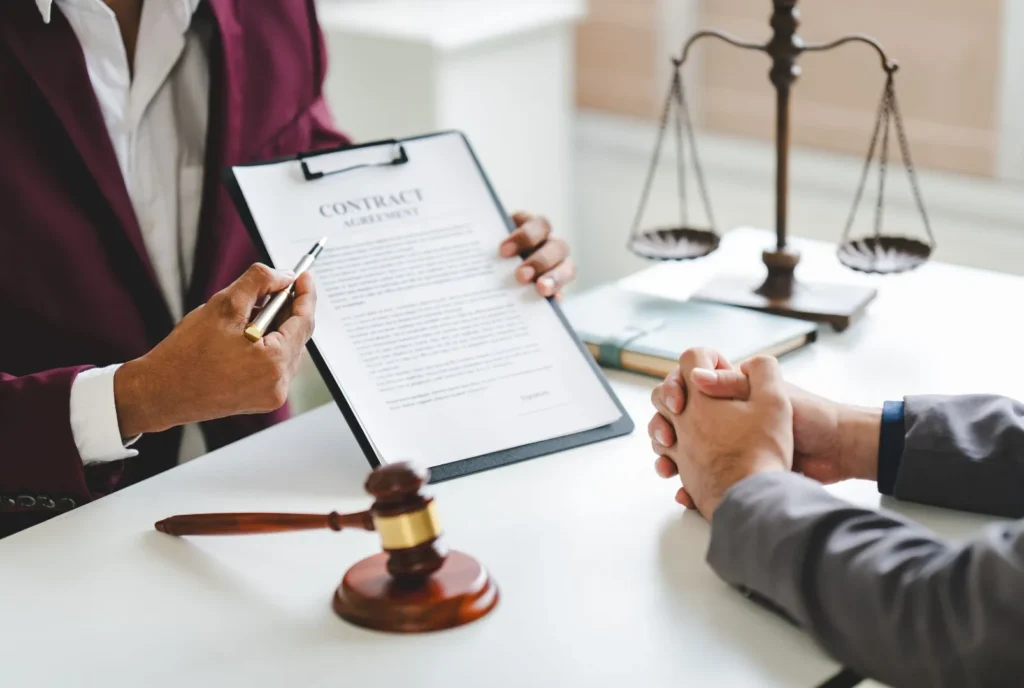Introduction
Unconventional by societal standards, free use relationship have begun to surface more in modern dialogue, challenging traditional notions of love and commitment. Often misunderstood and the subject of controversy, free use relationships are characterized by a mutual agreement to allow each partner to engage in sexual activities without the need for explicit consent at every instance.
Despite the appearance of permissiveness, these relationships are far from unstructured or devoid of respect for boundaries. This comprehensive analysis seeks to demystify the essence of free use relationships, elucidating the dynamics, benefits, challenges, and misconceptions embedded within them.
Understanding Free Use Relationships

Free use relationships revolve around a central concept wherein both partners willingly give or receive sex without the obligation to ask for permission each time. The idea is rooted in the notion of mutual trust and an in-depth understanding of each other’s preferences and boundaries. Over time, free use relationships have evolved, expanding to encompass more than just sexual interactions, incorporating broader principles of mutual respect and autonomy.
Historical Context and Evolution
The term ‘free use’ has its origins in legal and copyright contexts, but when applied to human relationships, it denotes a similar freedom of usage. Dating back to ancient societies that valued sexual freedom, proponents of free use relationships see it as a modern adaptation of historical autonomy. With the shifting tide of societal norms, such relationships benefit from historical contexts that didn’t place stringent constraints on sexual conduct.
Key Principles and Characteristics
Core to the foundation of free use relationships are trust and mutual respect. Key principles include an unwavering commitment to open communication, an acute awareness of individual boundaries, and an unrelenting respect for personal autonomy. Partners in free use relationships seek to establish an ecosystem where both parties feel empowered and respected.
Benefits of Free Use Relationships

Beyond the potential liberty of sexual engagement, free use relationships offer a range of benefits that can enhance personal growth and the partnership itself.
Enhanced Sense of Freedom and Autonomy
Partners in free use relationships experience a heightened sense of personal freedom. Additionally, the agreement to forego the necessity of explicit consent on every occasion fosters a deep trust, considered by many as a liberating force in the relationship.
Increased Communication and Negotiation Skills
Negotiation and communication are key benefits, as partners in free use relationships develop a more nuanced ability to discuss their desires and manage expectations. This level of frank communication often spills over into other aspects of life, contributing to overall relationship health.
Exploration of Personal Boundaries and Desires
Partners have the opportunity to explore their boundaries and learn about their individual desires within a safe environment. This freedom can lead to new levels of sexual and emotional self-awareness and confidence.
Flexibility in Relationship Dynamics
The unique nature of these partnerships allows for more fluid relationship dynamics, unencumbered by conventional roles. This can lead to more satisfying and less restrictive relationship structures.
Misunderstandings and insecurity are common in an intimate relationship. However, couples can openly and honestly discuss their thoughts and expectations for each other. For introverted or non-verbal individuals, communication is not the only bridge, there are also some methods worth trying. For example, couples can DIY couple Hat Pins or draw acrylic love paintings together, silently bringing their hearts closer and establishing a deep relationship during dating.
Challenges and Misconceptions

With the potential for misunderstanding and societal stigma, free use relationships are not without their challenges and misperceptions.
Addressing Societal Stigma and Misconceptions
One of the most significant hurdles for those in free use relationships is the societal judgment and misconception that such agreements are rooted in promiscuity rather than personal choice and respect. Partners often face scrutiny and are advised by skeptics to “rethink” their situation.
Dealing with Jealousy and Insecurity
Dealing with Jealousy, a common challenge in any relationship, can be magnified when partners engage in free use dynamics. Addressing and understanding its root causes is crucial in maintaining the health of the relationship.
Establishing and Maintaining Boundaries
While the essence of free use relationships is built on the premise of mutual consent sans the formality, there’s a delicate balance in ensuring boundaries are clear and respected. Overstepping these boundaries, even in the context of a free use relationship, can lead to distrust and hurt.
Legal Considerations and Implications
Navigating the legal framework can be complex within the context of free use relationships. Existing laws often do not account for such dynamics, which can leave partners vulnerable. Drafting formal agreements or considering certain legal implications is not uncommon.
Communication and Consent in Free Use Relationships

Clear communication remains the linchpin of successful free use relationships. It underpins every aspect, from defining the relationship to negotiating boundaries and giving and receiving consent.
Importance of Open Communication and Transparency
This type of relationship necessitates an environment of complete candidness where discussions about needs, desires, and expectations are open and ongoing. Transparency fosters an atmosphere of trust that is paramount in free use relationships.
Negotiating Terms and Boundaries
Partners must be able to effectively negotiate the terms of their free use relationship. This involves understanding what actions are acceptable without explicit consent and what must be communicated before initiating.
Seeking and Giving Consent in Various Aspects of the Relationship
Consent in free use relationships is multi-tiered, often encompassing advanced agreements on specific activities. Partners have the psychological freedom to refuse consent, albeit in a context of mutual understanding of the desires and comforts of the other.
Strategies for Effective Communication
Developing strategies for clear and respectful communication is key to sustaining a healthy free use relationship. Regular check-ins and discussing any changes in boundaries or feelings ensure open lines of communication.
Navigating Jealousy and Insecurity

Jealousy, though universal, can manifest differently in a free use relationship. It often stems from a lack of confidence in the strength of the relationship or one’s own desirability. Overcoming these emotions involves a blend of inner reflection, open communication, and building a solid foundation of trust.
Understanding the Root Causes
Thoughtful introspection can help partners identify the root causes of their jealousy or insecurity. Whether it’s personal history, self-image, or relationship dynamics, understanding this can be the first step in addressing the issue.
Strategies for Management and Overcoming
Individuals may employ a range of tactics to manage and overcome jealousy. From therapy to self-care practices, the approach is highly personal. At the relationship level, reassurance and intentional acts to strengthen trust can be effective.
Fostering Trust and Security
Fostering a sense of trust and security is a continual process in any relationship and particularly critical in a free use dynamic. Making a concerted effort to build trust through consistent actions and communication ensures a solid foundation.
Legal Considerations and Agreements

While formal legal documentation is not a requirement, it is increasingly common for partners in free use relationships to create agreements that ensure the protection of their rights and interests.
Overview of Legal Implications
There is a myriad of legal implications that partners may wish to consider. These range from the division of assets in the event of a breakup to custody issues if children are involved.
Importance of Agreements and Contracts
The importance of formalizing the terms of a free use relationship through contractual agreements can provide clarity and protection to both parties. It helps in ensuring that all aspects of the relationship are understood and agreed upon.
Key Elements in a Free Use Relationship Agreement
Legal agreements should be comprehensive and specific, detailing the terms of the free use relationship, including the scope of activities allowed without express consent and dispute resolution strategies.
Seeking Legal Advice and Resources
Professional legal advice can be invaluable in framing the parameters of a free use relationship. There are also resources available, including templates for such agreements, which may serve as a starting point for couples.
Real-life Experiences and Case Studies

Peering into real-life experiences and case studies provides a candid view of the diversity within free use relationships. These stories offer insights into the day-to-day dynamics, the challenges faced, and the joys experienced within such partnerships.
Personal Stories and Testimonials
Anecdotes from individuals navigating free use relationships provide a firsthand perspective on the dynamics at play. These narratives often highlight the need for open and honest communication, the development of personal agency, and the establishment of clear boundaries.
Case Studies
Examining specific instances and scenarios can shed light on the complexities within free use relationships. From external pressures to evolving boundaries, case studies can be a valuable learning tool for those interested in or currently practicing in free use dynamics.
Lessons Learned and Insights Gained
Reflection on shared experiences often reveals key lessons and insights. These takeaways may range from overcoming challenges to fostering a profound connection based on mutual respect and understanding.
Common Myths and Misconceptions Debunked

An important facet of demystifying free use relationships is addressing the misinformation that surrounds them. By debunking prevalent myths, we can offer a more accurate understanding of what these partnerships truly entail.
Addressing Common Myths and Misconceptions
From being labeled as hedonistic to misunderstandings about what the term ‘consent’ truly means in a free use context, there are many myths that need to be set straight. Discussing these misconceptions openly serves to dispel the stigma associated with free use relationships.
Providing Factual Information and Dispelling Stereotypes
Education around the factual nature of free use relationships is vital. This includes providing clear definitions, discussing the intent behind the concept, and dispelling stereotypes that cloud true understanding.
Clarifying Misunderstandings and Offering Alternative Perspectives
Misunderstandings can often be rooted in a lack of clarity or education. Offering alternative perspectives can broaden the narrative around free use relationships, presenting them as a valid but alternative form of partnership.
By examining the intricacies and multi-faceted nature of free use relationships, we can foster a more enlightened and accepting attitude towards the diverse ways in which individuals choose to express their love and intimacy. While not without challenges, these relationships offer a unique space for growth, self-reflection, and the celebration of personal autonomy within the realm of partnership. Understanding these dynamics is only the first step towards a future where love is not confined by conventional boundaries, but celebrated in all its forms.
Conclusion
In concluding the exploration of free use relationships, it is essential to acknowledge both the complexity and the profound potential these partnerships hold for personal growth and deepened intimacy. Rooted in transparency, trust, and mutual respect, free use relationships challenge conventional norms and offer a testament to the versatility of human connections. While navigating through their unique dynamics demands continuous communication, personal introspection, and unyielding honesty, the rewards often include a greater sense of freedom, understanding, and connection.
It is through dissecting the nuances, addressing misconceptions, and celebrating the successes of these relationships that we can promote a broader acceptance and appreciation of diverse relational structures. By doing so, we not only validate the myriad ways love can manifest but also encourage a more inclusive understanding of consent, autonomy, and partnership in the contemporary world.
Frequently Asked Questions (FAQ)
Q: What exactly is a free use relationship?
A: A free use relationship is a type of partnership where both parties have agreed that one person can initiate sexual activities with the other without needing express consent at the moment, as long as these interactions fall within previously agreed-upon boundaries and terms.
Q: How do couples ensure that consent remains a critical component of their free use relationship?
A: Consent is established through clear, open, and honest communication before entering a free use dynamic. It involves setting boundaries, discussing scenarios, and agreeing on safe words or actions that either party can use at any time to pause or stop an interaction.
Q: Can a free use agreement be changed or updated after it’s been established?
A: Absolutely. It’s encouraged that partners regularly review and update their agreements as their relationship evolves or as individuals’ boundaries or desires change. This ensures that the relationship continues to be consensual and fulfilling for both parties.
Q: Where can couples find resources or professional advice about starting a free use relationship?
A: Couples can seek professional advice from sex therapists or relationship counselors familiar with non-traditional relationship dynamics. Online communities and forums dedicated to free use and other alternative relationship styles can also be valuable resources for real-life advice and templates for agreements.
Q: Are free use relationships legal?
A: While the concept of free use within the confines of a consensual adult relationship isn’t illegal, the specific practices and agreements should be scrutinized to ensure they comply with all applicable laws and regulations regarding consent and sexual conduct.






